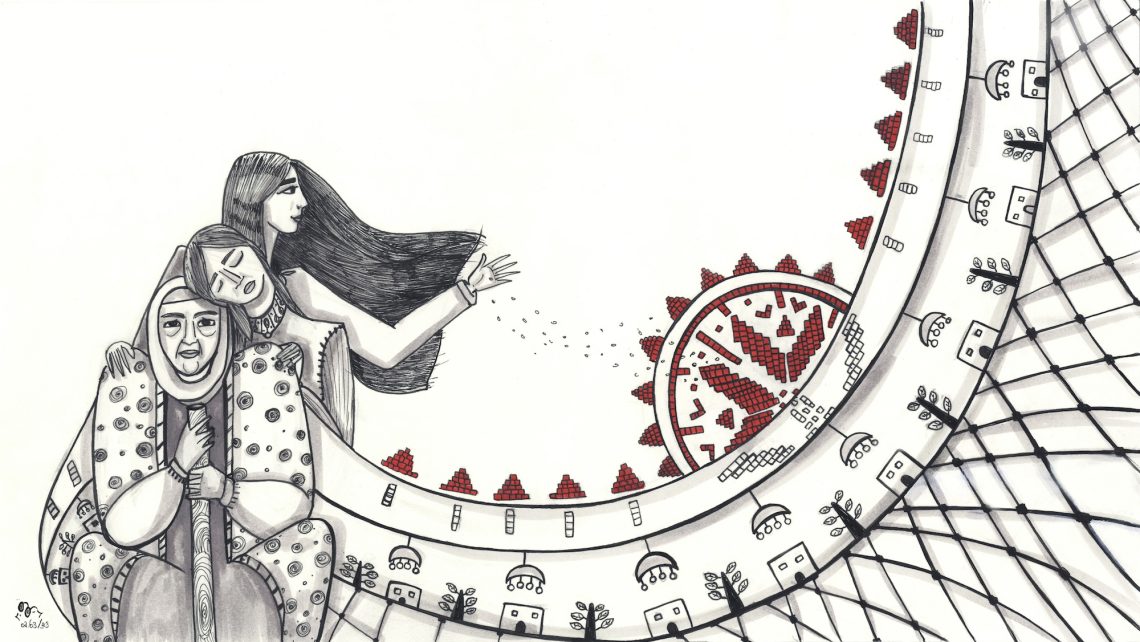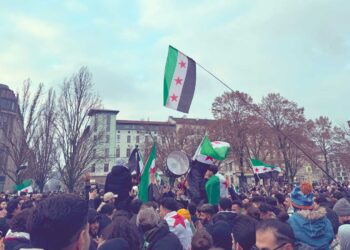Activist circles of women of the Global South, especially women from the Arab world, used to stand up on March 8 to emphasize that this day is a day of struggle, not a day of celebration.
We do not need to repeat this rhetorical tradition this year.
The horrific reality unfolding before us in Gaza, and the global reaction to it, cannot afford to wait for this “rhetoric” to run its course. If, in these moments of extreme brutality, history can afford to have a scene of speech, we must say, as its faithful mediators, that this March 8 is historic because it reverberates with the creation of meaning and a material intensification of a feminist momentum of struggle due to what is happening in Palestine.
Among other things, Gaza has exposed, once and for all, the neoliberal feminism that either stood idly by and watched, or actively contributed to the genocide, raising in the faces of the victims what appeared before the moment of genocide as rhetorical performative arts: representation, equal opportunity and equality. At the moment of genocide, these “arts” are transformed into rhetorical masses that descend on the heads of the victims like lava. The debate returns to the axioms of the first truth: who will live and who will die, whether they participated in the debate or not.
This feminism that defends equality without defending the actual right to life of the daughters and sons of the stolen land, and without defending their basic right to defend their stolen lives, carries after the massacre Marie Antoinette cakes, or their substitutes in the modern world: an airdrop of bread crumbs on the heads of those who don’t know why the sky is so hateful to them. Or they do!
It collapsed, but it certainly does not leave a vacuum. The women of the region have been struggling for decades, they have not and will not wait for a rhetorical or de facto leadership over them, and they are certain that only they can speak for themselves, now more than ever. Let the space now be left to its true creators, to generations of women and feminist activists from the Arab world and the Global South, to the generations of popular movements and the Arab Spring and beyond, to those who led in the streets, in schools, and in homes, to those who wrote, theorized, were persecuted, fought, created alternatives, and changed.
The liberating human agency was only for them, and this agency, in all its alphabets, must return to them today as well.








